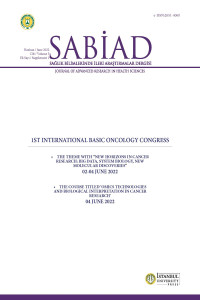Abstract
Soy intake has been associated with a lower risk of prostate cancer. Soybeans contain isoflavones, genistein, daidzein and glycitein, which have shown anti-cancer effects in cell culture and animal studies. Recently clinical trials of soy isoflavones in humans have also shown promising results. Soy isoflavones have anti-oxidant and anti-inflammatory properties which may be important for their anticancer effects. In addition, recent studies have shown significant epigenetic effects of soy isoflavones. DNA methylation and histone acetylation has been reported to be modified by genistein. Therefore, genistein may have effects similar to the commonly used cancer drugs, demethylating agent 5-azacytidine and histone deacetylase inhibitor drug Vorinostat. Thus, combining genistein with cancer chemotherapeutic agents may have potential benefits. Furthermore, radiation therapy and conventional cancer therapeutic agents activate NF-kappa-B resulting in resistance to chemotherapy and radiation. Genistein is a potent inhibitor of NF-kappa-B, and thereby may sensitize cancer cells to chemotherapy and radiation therapy. While sensitizing cancer cells chemotherapy and radiation, at the same time genistein may protect the normal tissues from adverse effects of radiation chemotherapy which are due to their oxidative and inflammatory effects. Clinical trials investigating the chemotherapy and radiation therapy potentiating as well as toxicity reducing effects of soy isoflavones are warranted. In addition, adverse effects of androgen deprivation therapy, such as metabolic syndrome, hypertension, diabetes and cardiovascular disease could also be potentially prevented by soy isoflavones.
References
- Curtius K, Wright NA, Graham TA. Evolution of Premalignant Disease. Cold Spring Harb Perspect Med. 2017;7(12).
Abstract
Soy intake has been associated with a lower risk of prostate cancer. Soybeans contain isoflavones, genistein, daidzein and glycitein, which have shown
anti-cancer effects in cell culture and animal studies. Recently clinical trials of soy isoflavones in humans have also shown promising results. Soy isoflavones
have anti-oxidant and anti-inflammatory properties which may be important for their anticancer effects. In addition, recent studies have shown significant
epigenetic effects of soy isoflavones. DNA methylation and histone acetylation has been reported to be modified by genistein. Therefore, genistein may
have effects similar to the commonly used cancer drugs, demethylating agent 5-azacytidine and histone deacetylase inhibitor drug Vorinostat. Thus,
combining genistein with cancer chemotherapeutic agents may have potential benefits. Furthermore, radiation therapy and conventional cancer
therapeutic agents activate NF-kappa-B resulting in resistance to chemotherapy and radiation. Genistein is a potent inhibitor of NF-kappa-B, and thereby
may sensitize cancer cells to chemotherapy and radiation therapy. While sensitizing cancer cells chemotherapy and radiation, at the same time genistein
may protect the normal tissues from adverse effects of radiation chemotherapy which are due to their oxidative and inflammatory effects. Clinical trials
investigating the chemotherapy and radiation therapy potentiating as well as toxicity reducing effects of soy isoflavones are warranted. In addition, adverse
effects of androgen deprivation therapy, such as metabolic syndrome, hypertension, diabetes and cardiovascular disease could also be potentially
prevented by soy isoflavones.
References
- Curtius K, Wright NA, Graham TA. Evolution of Premalignant Disease. Cold Spring Harb Perspect Med. 2017;7(12).
Details
| Primary Language | English |
|---|---|
| Subjects | Clinical Sciences |
| Journal Section | Meeting Abstract |
| Authors | |
| Publication Date | August 9, 2022 |
| Submission Date | July 18, 2022 |
| Published in Issue | Year 2022 Volume: 5 Issue: S-1 |

